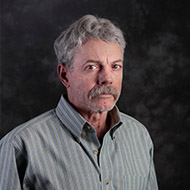Last week a signal event occurred at AOPA headquarters: The newest CFI on our staff gave her first-ever solo endorsement to a student. (That student, by the way, performed brilliantly, winning praise from the tower controllers for the skill she displayed in three circuits around the pattern.)
The decision to authorize a student to fly solo is one of the most difficult an instructor ever makes, especially the first time around. A second opinion can be a big help, reassuring student and instructor alike. As befits an organization with a national profile, AOPA goes to some trouble to make sure its employee flight training program runs as safely as possible. That includes voluntarily following recognized best practices even though we’re not operating for profit. In particular, it includes requiring every student to go through stage checks—one pre-solo, one before the solo cross-country, and one prior to the checkride—regardless of the experience or freshness of the primary instructor.
There’s no question that a great many CFIs are more than capable of assessing their students themselves. Requiring stage checks regardless serves several useful purposes. Given no choice in the matter, veteran instructors have no reason to see it as a challenge to their judgment, while newer CFIs are sheltered from any pressure to do without the independent confirmation they might actually want. The check instructors stay in touch with how their colleagues are actually teaching, so any perceived shortcomings in technique or drift from the preferred methods can be caught early and addressed quietly, behind the scenes.
Students benefit in a couple of ways. They get a fresh perspective and the chance to learn some new tricks of the trade, perhaps beginning to understand the difference between procedure and technique. The more nervous may be reassured to learn that a second expert also thinks their flying is up to the challenges posed by the next phase of training. It also helps them get over any nervousness about having someone less familiar evaluate their skills, a comfort level that will prove helpful on the checkride.
Especially for students with test-taking anxieties, it’s important to make it clear that the stage check is not a test. They need to understand that it’s another flight lesson, though not just another lesson: It’s an opportunity to have some fun flying with someone new as well as the chance to get an honest assessment of their progress. They won’t be expelled if they don’t do everything exactly right; they’ll just spend some time improving whatever still needs work. The obvious importance of solid airmanship once they’re out there on their own should make every student eager to get a dispassionate estimate of his or her current skills, but of course pride can get in the way. As in any critique, language that is direct and honest without being needlessly harsh can help avoid bruised feelings.
Schools operating under Part 141 are pretty much required to include stage checks in their curricula. Less formal programs might want to follow suit. The mutual benefit to student and instructor of getting a look from a fresh pair of eyes outweighs some logistical inconvenience, and if there’s a serious risk of losing the student to a competitor, that student may well be leaving anyway. Instructors within a larger school shouldn’t find it hard to work something out with a colleague even if the school doesn’t require it. Individual instructors might look into trading favors with another CFI on the field provided there’s someone there they trust. Even if you’re the only one offering flight training in the tri-county area, there still may be possibilities. Does an old friend (or one of your own former CFIs) teach at another field 75 miles away? Fly a dual cross-country, and then let the student relax by doing some airwork with your friend. Talk to the friend before you leave, and the student on the way home.


